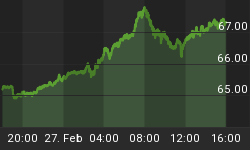Today's Ifo and last week's Belgian leading indicator offer the tantalizing hope that the economic downturn across the Euro-zone is starting to bottom out - but one month is not enough to call a trend, and the ‘zone in general, and Germany in particular, are still likely in for a rough first quarter of 2009.
First, the Ifo index in Germany. The headline business climate index edged upward from 82.7 in December to 83.0 in January, the first improvement in eight months. While the current conditions sub-index continued to deteriorate, slipping from 88.8 in December to 86.8 in January, the expectations sub-index rose from 76.9 to 79.4. The assumption is that monetary easing from the European Central Bank (ECB), combined with the government's recent fiscal stimulus package, have restored some stability to the economy, allowing businesses to see some light at the end of the tunnel. Nevertheless, the difference between the current conditions and expectations indices remains wide, suggesting that the economy will contract again in Q1 2009 and that the government's latest forecast of -2.25% real GDP growth this year is about right.
Chart 1
Which takes us to our favorite Euro-zone leading indicator, the Belgian National Bank's (BNB) business confidence indicator. As we've noted before, thanks to Belgium's strong trade ties with its neighbors (about 80% of Belgium's manufacturing output is sold abroad, mostly to fellow EU members), the BNB's business confidence index is a reliable leading indicator - about six months out - for GDP growth in the Euro-zone as a whole.
Chart 2
Having crashed to a record-low -31.3 in December, the overall confidence index managed to nudge up to -27.7 in January, as confidence improved somewhat in the manufacturing sector (from -36.5 in December, to -30.3 in January). The data hint that the worst of the deterioration is over, but this is not the same as recovery. It is most likely that what we are seeing is some stabilization at low levels with a clear improving trend in the indicator unlikely until sometime in Q2.
The Belgian and German data imply that the Euro-zone as a whole will see a marked contraction in Q4 2008 and Q1 2009, flat-to-negative growth in the middle of the year, and a sustained improvement finally underway by Q4. But given the speed with which demand collapsed across the region in recent weeks, the risk for this outlook remains to the downside.















